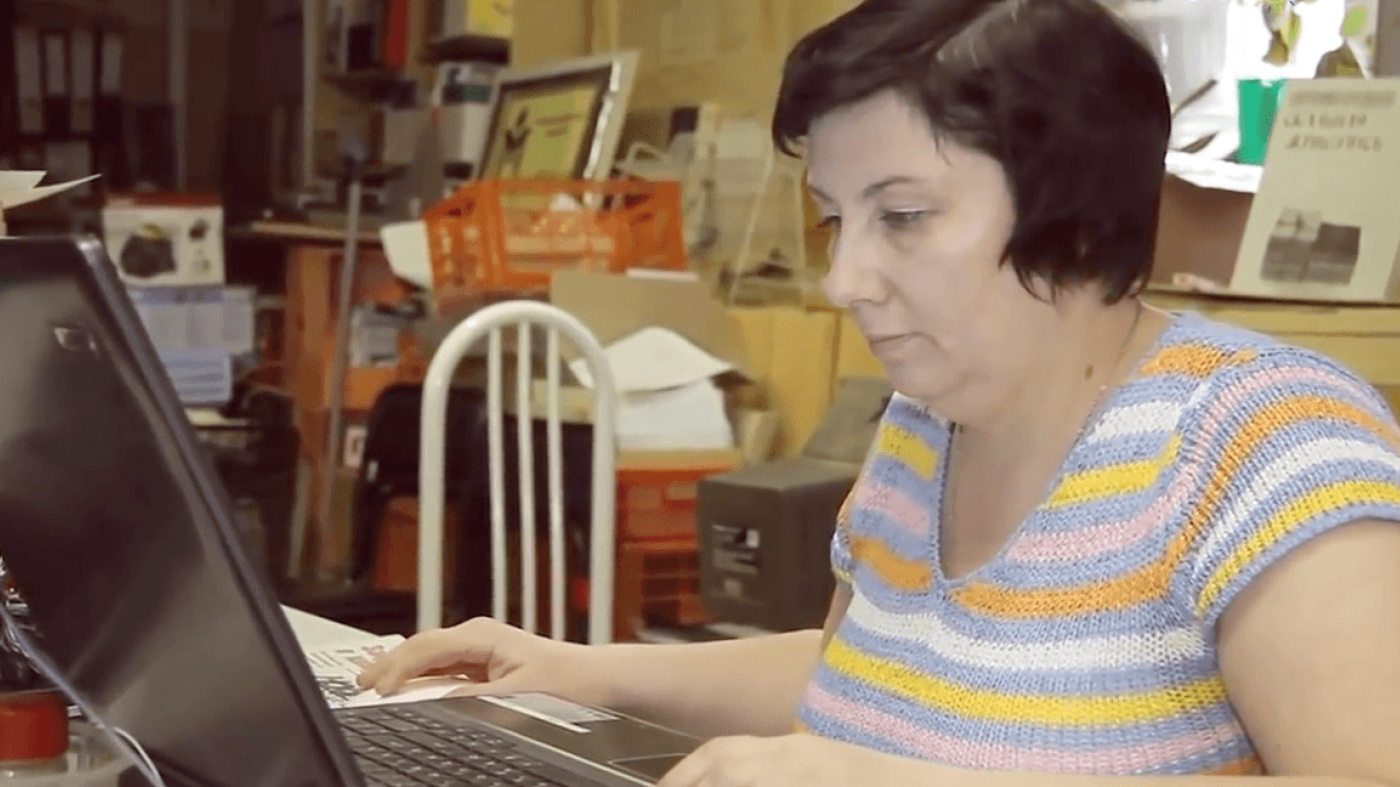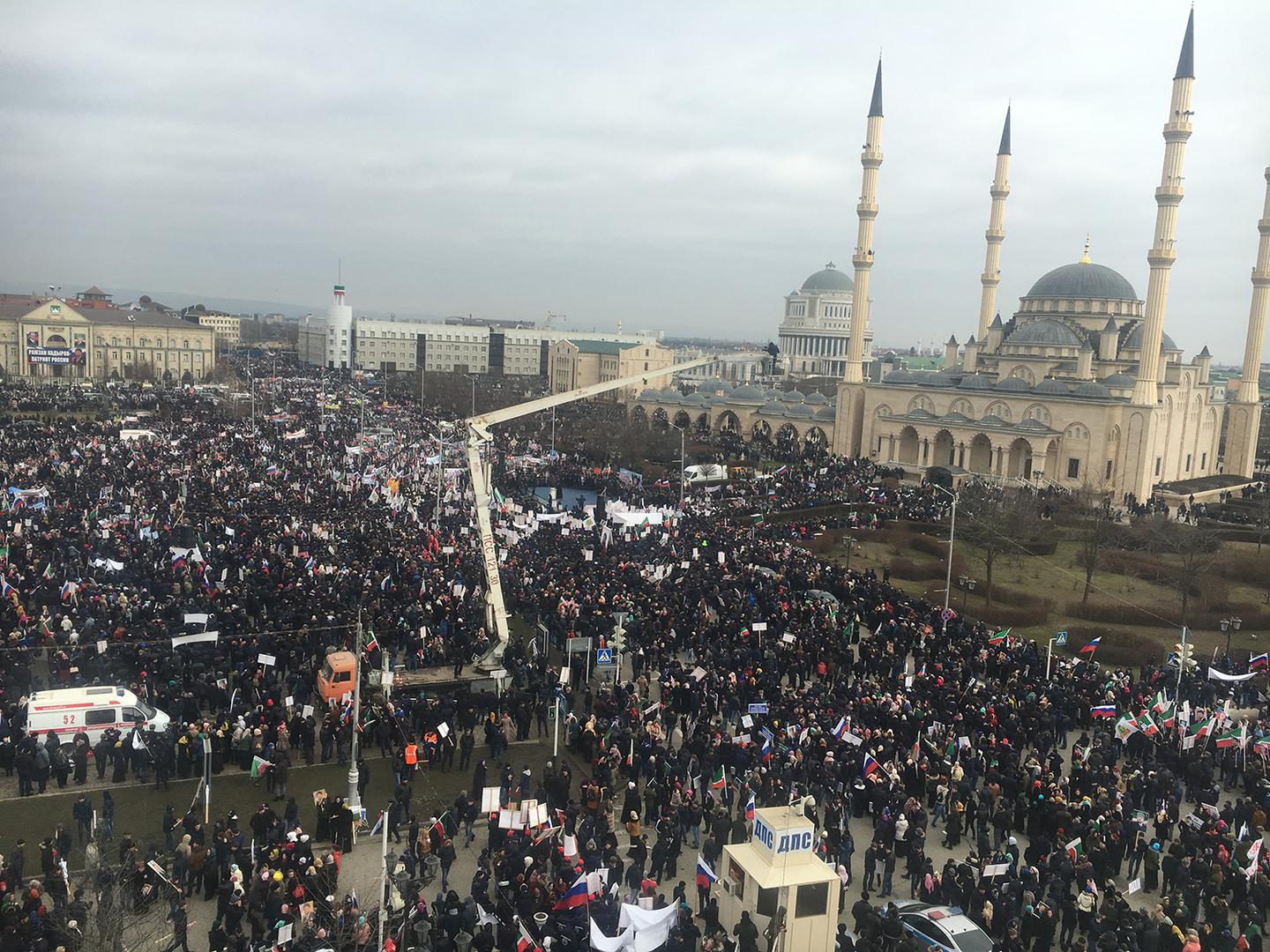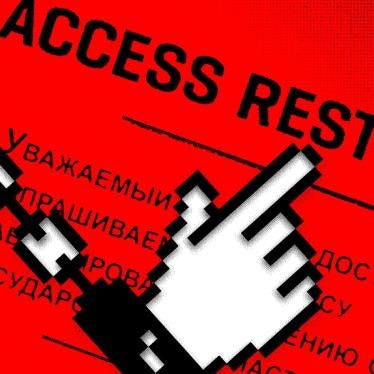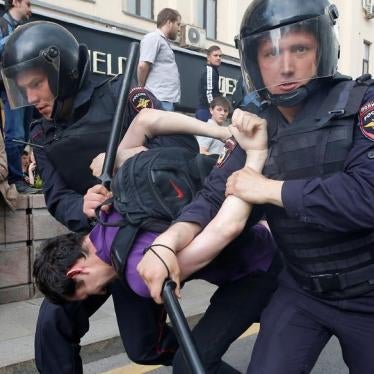When Ekaterina Vologzheninova posted a satirical cartoon criticizing Russia’s involvement in Ukraine on her social media page, she had no idea what was coming next or that she would end up with a criminal record. After all, she only had four followers.
The cartoon showed a man resembling Vladimir Putin leaning over a map of Ukraine with a knife. It was one of a few posts Ekaterina, a cashier from Yekaterinburg, Russia, put up on the popular Russian social network Vkontakte that were critical of the country and its policies. She said she made the posts out of frustration with the state-run media, which she felt only followed the party line and didn’t offer any balance.
After that post, everything changed.
The 46-year-old single mother’s home was raided, while her elderly mother was present, and her computer was seized. She faced criminal charges. In a kafka-esque twist, during her trial in February 2016, the court ordered her to destroy the computer, charger, and mouse as “instruments of a crime.”
The crime of criticizing Russia.
Cases like Ekaterina’s, in which the authorities target people who have never been activists or even particularly political, are becoming increasingly common in Russia. In 2016, 90 percent of convictions for extremist expressions were related to statements made online. A new human Rights Watch report, “Online and On All Fronts: Russia’s Assault on Freedom of Expression,” looks at how Russia is using an overly broad interpretation of certain laws to bring people to trial for expressing opinions or voicing criticism. Some are more traditional activists, but others – like Ekaterina – are regular citizens.
Her official charges were for incitement of hatred toward “Russian people,” “Russian volunteers fighting on the side of the insurgents in eastern Ukraine,” “authorities,” and “residents of eastern Ukraine who do not support the political course of modern Ukraine.”
Her posts had included a poem criticizing Russia’s actions in Ukraine and images reminiscent of USSR period posters with captions, “Stop the plague,” and “Death to Moscow invaders.”
During her trial, Ekaterina looked small and out of place in the courtroom, flanked by masked guards. She was sentenced to 320 hours of community service, and was told to destroy her computer equipment.
“Ekaterina’s case is an example of how courts interpret Russia’s anti-extremist legislation very broadly. In particular, the notion of incitement to hatred towards a social or ethnic group is very vague,” said Yulia Gorbunova, Russia researcher at Human Rights Watch.
During the trial, Ekaterina’s lawyer said, the courts rejected all defense motions. She was charged under anti-extremist legislation, though the social media post could hardly be called extreme. And she was convicted of inciting hatred against Russians, which was deemed a social or ethnic group by the court. Her conviction and sentence were upheld on appeal.
By criticizing Russia’s actions in Ukraine to her four followers, the courts deemed Ekaterina had somehow humiliated or offended the whole of Russia and its people.
Although the community service sentence was not as harsh as the prosecution requested, the result of the trial was exactly what the Russian authorities wanted.
Ekaterina told her lawyer that the shock of the trial and her conviction meant she would be much more cautious in what she says – even in her own home. This is exactly what the Russian authorities are trying to achieve.
Before her arrest, when Ekaterina’s mother asked the men raiding her daughter’s home what possible reason they could have to turn the flat upside down, one replied, “Well that’s the thing, nobody should say or write anything.” The man then used an old soviet expression, which loosely translates as “say whatever you want but keep it to your kitchen table,” referring to an old Soviet dissident practice of discussing sensitive issues only at home.
“They only need to have a few trials like this to make everyone scared to speak out,” Gorbunova said. “Ekaterina’s case can be viewed as part of the new norm for Russia.”







